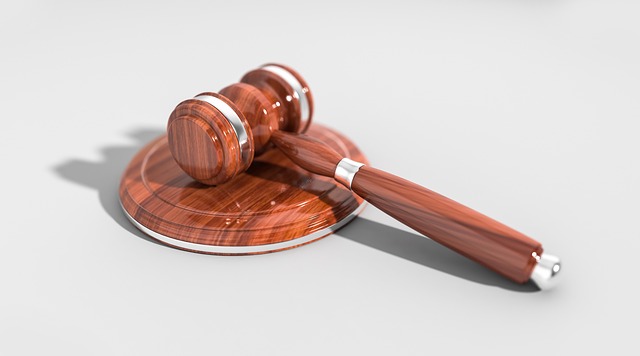Fair trial advocacy is paramount in Oregon's criminal justice system, requiring lawyers to master constitutional rights, procedural rules, and evidentiary laws. They prepare robust defenses, cross-examine witnesses, challenge illegal searches, and ensure client rights during trials. This process extends to appeals, where attorneys strategize to reverse unfair verdicts, upholding the principles of a fair and just legal system.
In Oregon, the criminal justice system demands robust legal representation for those facing charges. This article delves into the critical role of legal advocates in ensuring a fair trial for defendants. We explore strategies and rights within Oregon’s system, highlighting the importance of skilled defense preparation. From ethical considerations during representation to post-trial appeals, this guide equips readers with knowledge on effective advocacy. Discover how understanding these processes fosters fair trial advocacy in Oregon’s criminal justice landscape.
- Understanding Oregon's Criminal Justice System
- The Role of Legal Advocate in Defense Cases
- Ensuring Fair Trial: Strategies and Rights
- Building a Strong Defense: Case Preparation
- Representing Clients Effectively: Ethical Considerations
- Post-Trial Advocacy and Appeals Process
Understanding Oregon's Criminal Justice System

Oregon’s criminal justice system operates under a set of laws and procedures designed to ensure fairness and due process for all individuals accused of crimes. Understanding this intricate system is essential for any legal advocate navigating criminal defense cases. The state has established guidelines that govern arrest, charging, and trial processes, with a strong emphasis on protecting the rights of both defendants and victims.
Fair trial advocacy plays a pivotal role in Oregon’s justice system. Legal advocates must be well-versed in constitutional rights, procedural rules, and evidentiary laws to ensure their clients receive a fair and impartial trial. This includes safeguarding against illegal searches and seizures, protecting against self-incrimination, and ensuring the admissibility of evidence. By mastering these aspects, criminal defense lawyers can effectively defend their clients’ interests and navigate Oregon’s legal landscape successfully.
The Role of Legal Advocate in Defense Cases

In criminal defense cases, a legal advocate plays a pivotal role in ensuring their clients receive a fair trial advocacy. Their primary responsibility is to safeguard the rights of the accused and challenge any potential violations of those rights. This includes thorough examination of evidence, cross-examination of witnesses, and navigating complex legal procedures to build a robust defense strategy.
The advocate’s expertise lies in interpreting laws and regulations to present a compelling case for their client. They must be adept at presenting arguments, countering prosecution claims, and raising relevant defenses. By doing so, they ensure that the process remains fair, transparent, and just, upholding the principles of our legal system.
Ensuring Fair Trial: Strategies and Rights

Ensuring a fair trial is at the core of criminal defense practice in Oregon, and advocates employ various strategies to safeguard their clients’ rights. One key aspect is thorough preparation, where lawyers extensively research case law, examine evidence, and build a comprehensive strategy. This includes challenging any illegal searches or seizures, ensuring proper procedures were followed during arrest, and questioning the admissibility of confessions to protect against self-incrimination.
During trials, defense attorneys present compelling arguments, cross-examine witnesses, and introduce mitigating evidence to counter the prosecution’s case. They also leverage constitutional protections, such as the right to an impartial jury, the privilege against self-incrimination, and the right to effective assistance of counsel. Fair trial advocacy in Oregon involves not just fighting for a not-guilty verdict but ensuring that every step of the legal process is conducted fairly and justly.
Building a Strong Defense: Case Preparation

Building a strong defense starts with meticulous case preparation, a cornerstone of fair trial advocacy. Criminal defense attorneys in Oregon meticulously review evidence, witness statements, and legal precedents to construct a robust strategy. This process involves thorough investigation, interviews with clients and witnesses, and an in-depth analysis of the facts surrounding the case. By preparing diligently, defense lawyers aim to uncover potential weaknesses in the prosecution’s case, identify violations of their client’s rights, and gather compelling evidence that could sway the jury in favor of a not guilty verdict.
Case preparation extends beyond gathering facts; it includes crafting persuasive legal arguments based on Oregon’s unique criminal justice system. Defense attorneys must be adept at navigating complex laws, constitutional issues, and procedural rules to ensure their client receives a fair trial. This strategic approach, backed by extensive research and a deep understanding of the law, is vital in mounting an effective defense against criminal charges.
Representing Clients Effectively: Ethical Considerations

Representing clients effectively in criminal defense cases requires a strong ethical foundation. As legal advocates, it’s crucial to uphold the principles of fairness and integrity throughout the process. This includes maintaining client confidentiality, ensuring informed consent, and avoiding conflicts of interest. Lawyers must be vigilant in protecting their clients’ rights, providing them with comprehensive case explanations, and making strategic decisions that align with the best interests of the individual.
Ethical considerations also extend to interacting with opposing parties and the court system. Maintaining professional conduct, respecting the rules of evidence, and adhering to judicial guidelines are essential for a fair trial advocacy approach. Lawyers play a vital role in ensuring that justice is served while preserving their clients’ rights and dignity throughout the legal process.
Post-Trial Advocacy and Appeals Process

After a criminal trial, the appeals process plays a crucial role in ensuring fair trial advocacy. Defendants who are dissatisfied with the outcome have the right to appeal their case, challenging any errors or inconsistencies that may have occurred during the proceedings. This involves meticulous review of trial transcripts and evidence by legal experts who specialize in appeals.
The post-trial advocacy phase is where skilled criminal defense attorneys can make a significant impact. They scrutinize the verdict, searching for grounds to reverse it. This includes examining procedural mistakes, insufficient evidence, or violations of constitutional rights. By presenting compelling arguments and strategic filings, these advocates aim to secure a new trial or, ideally, a reversal of the original conviction, ensuring a more just outcome for their clients.






